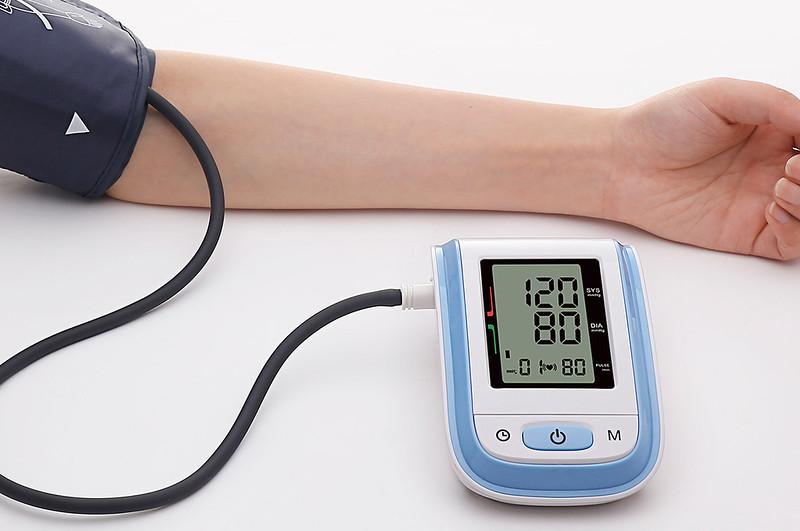- Speak for the Heart is now Positive Vibes!
- Posts
- Surprising News About Taking Your Blood Pressure
Surprising News About Taking Your Blood Pressure
And more heart-health news
Hello again!
I hope you’ve had a heart-healthy week and are gearing up for a healthy fall! There are a couple of very interesting news stories in this issue, with “My Take” on each of them, as always.
Also stay tuned for an exciting development that I’ll be rolling out, possibly as soon as next week: a new referral-rewards program for all my subscribers! You’ll be able to earn some great rewards just for referring others to this newsletter! More details to come. 🙂
(For new subscribers): This weekly update goes out every Wednesday, except for the final Wednesday of the month, when the long magazine-style version of Speak for the Heart will be delivered to your inbox. As always, premium subscribers get bonus content in every issue!
To your health,
Yasmine S. Ali, MD

Weekly Heart-Health News: The Highlights
My Take:
The American Heart Association News labeled the results from this study “a surprising finding about taking blood pressure lying down.” This is because preliminary research has shown that blood pressure readings taken while lying down (as opposed to while sitting, which is how blood pressure is usually taken) are more accurate at predicting serious heart problems, stroke, and even death.
This makes sense, because blood pressure is physiologically lower while lying down, so if your blood pressure is high even when you’re lying down, that is a stronger predictor of heart attack, stroke, and cardiac death.
What this means for you:
If you take your blood pressure at home (and I have always encouraged home blood pressure monitoring), be sure to get at least some—maybe even most—of the readings while you are lying down. As with taking it in a seated position, lie down and relax for at least 5 minutes before inflating the cuff and getting the measurement.
In case you missed it, here’s my article on taking blood pressure correctly while seated—all of this should still apply when taking it while lying down:
My Take:
Brands like Sudafed used to be excellent decongestants because, prior to 2006, they contained pseudoephedrine, which worked extremely well. However, pseudoephedrine is also illicitly processed to make methamphetamine (“meth”), so in 2006 a federal law was passed that limited access to it (in many cases, you now have to get it from a pharmacist “behind the counter”).
In its stead, Sudafed, Dayquil, and others turned to phenylephrine, which also causes increased blood pressure, didn’t seem to work as well for patients, and now—as confirmed by a unanimous FDA vote yesterday—has been declared no more effective than a placebo pill (“sugar pill”).
What this means for you:
There is no reason to take decongestants in which phenylephrine is the primary active ingredient, given that we now know it doesn’t work, and can raise your blood pressure in the process. It is likely that drug makers will change the composition of these products in the future.
However, there are a number of products on the market that contain phenylephrine, but which also have other ingredients that are still effective decongestants. Often, you can find versions of these products (like Mucinex and Robitussin DM, which is my personal favorite) that are free of phenylephrine, and that is what I use for myself.
Remember that you can also still get products containing pseudoephedrine—which is effective as a decongestant—behind the pharmacy counter, without a prescription. Sometimes they are also available in the general pharmacy area, but you have to show your ID to buy them. Examples would be Mucinex-D and Allegra-D.
Keep in mind that pseudoephedrine-containing products should be taken in the daytime (or when you plan to be awake for several hours), because they can cause restlessness and make it difficult to sleep. (Remember that this is an ingredient that is used to make methamphetamine, and then the side effects will be easy to remember as well.)
Here’s an excellent rundown on effective over-the-counter decongestants from an allergy specialist:
Last Week’s Poll Results:
“What is your major barrier to getting enough sleep?”
40% of respondents answered, “I wake up too early and can’t go back to sleep.” This was the single most-frequently chosen answer, so in the future I will write and share a blog post with tips for dealing with this dilemma.
This Week’s Quick Poll:
Do you check your blood pressure at home?(All answers remain anonymous.) |
Subscribe to Premium to read the rest.
Become a paying subscriber of Premium to get access to this post and other subscriber-only content.
Already a paying subscriber? Sign In.
A subscription gets you:
- • Exclusive, bonus content in EVERY issue!
- • FREE Premium Health Guides and Heart-Health Tip Sheets, as soon as they are released!
- • Access to "Cooking with a Cardiologist," including restaurant guides, heart-healthy recipes, meal plans, cookbook recommendations, videos, and more!
- • Special subscriber discounts on future products (e-books, workbooks, courses, webinars, live events, calendars, merchandise, etc.)
- • Eligible for special Premium subscriber giveaways!
- • Lifestyle tips and strategies with actionable advice for promoting heart health and cardiovascular well-being





